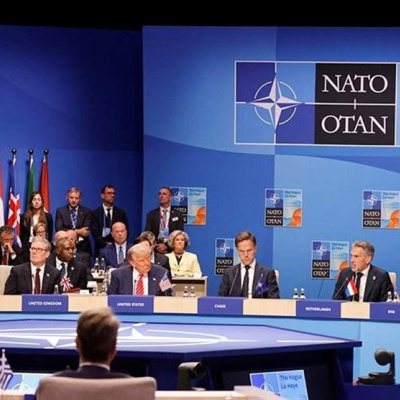
Title: Iran’s Nuclear Program Dominates NATO Summit Discussions in The Hague – A Diplomatic Breakdown
NATO Summit Overshadowed by U.S.-Iran Tensions
The NATO summit in The Hague, held on June 24-25, 2025, was formally centered on key alliance priorities—including increased defense spending (targeting 5% of GDP), support for Ukraine against Russia, and strengthening Western unity. However, recent U.S. airstrikes on Iran’s nuclear facilities, which former U.S. President Donald Trump claimed had “set back Iran’s nuclear program by decades,” became the unspoken focal point of behind-the-scenes discussions.
The legitimacy of the strikes and their implications for global security sparked heated debates in sideline meetings and press briefings, revealing deep divisions within NATO and the broader international community.
Global Think Tanks Weigh In
U.S. Perspectives: Mixed Reactions
U.S.-aligned think tanks largely defended Washington’s stance, though some urged caution. The Atlantic Council warned that escalating tensions could destabilize the Middle East further, particularly if Iran seeks to rebuild its nuclear capabilities. Meanwhile, the Brookings Institution emphasized the need for post-strike diplomacy, arguing that without a long-term diplomatic strategy, the risk of broader conflict could rise.
European Concerns: NATO Unity at Risk?
The European Council on Foreign Relations (ECFR) framed the U.S. strikes as a potential wedge in NATO cohesion, highlighting efforts by Germany, France, and the U.K. to revive nuclear negotiations with Iran. The EU Institute for Security Studies (EUISS) echoed these concerns, noting that Middle East instability could spill over into European security. French President Emmanuel Macron’s rejection of military-driven regime change in Iran—calling it a “grave mistake”—was cited as a key counterpoint to U.S. policy.
Russian & Chinese Condemnations
Moscow’s Russian International Affairs Council (RIAC) condemned the strikes as a violation of international law, framing them as part of a broader Western strategy to weaken Russia’s allies. President Vladimir Putin’s offer to mediate between Iran and Israel was highlighted as evidence of Russia’s “responsible global diplomacy.”
China’s Institute of International Studies (CIIS) similarly criticized the attacks, warning of threats to Middle East stability and Chinese energy interests. The institute urged strengthened ties with Iran and Russia to counter U.S. unilateralism but stopped short of endorsing escalation.
India’s Balancing Act
New Delhi’s Institute for Defence Studies and Analyses (IDSA) took a pragmatic view, noting the strikes’ potential to disrupt regional stability and India’s oil imports. While cautiously supportive of Israel’s position, the think tank stressed the necessity of renewed diplomacy.
The Bigger Picture: Diplomacy vs. Deterrence
Though the NATO summit’s agenda focused on European security, the shadow of U.S.-Iran tensions loomed large. While American analysts justified the strikes as a nonproliferation measure, European, Russian, and Chinese voices overwhelmingly called for de-escalation through dialogue. The divide underscores a critical challenge for NATO: balancing hardline security measures with the imperative of diplomatic engagement to prevent wider conflict.
As the summit closed, one question remained unanswered: Can diplomacy prevail where military action has deepened the rift?


